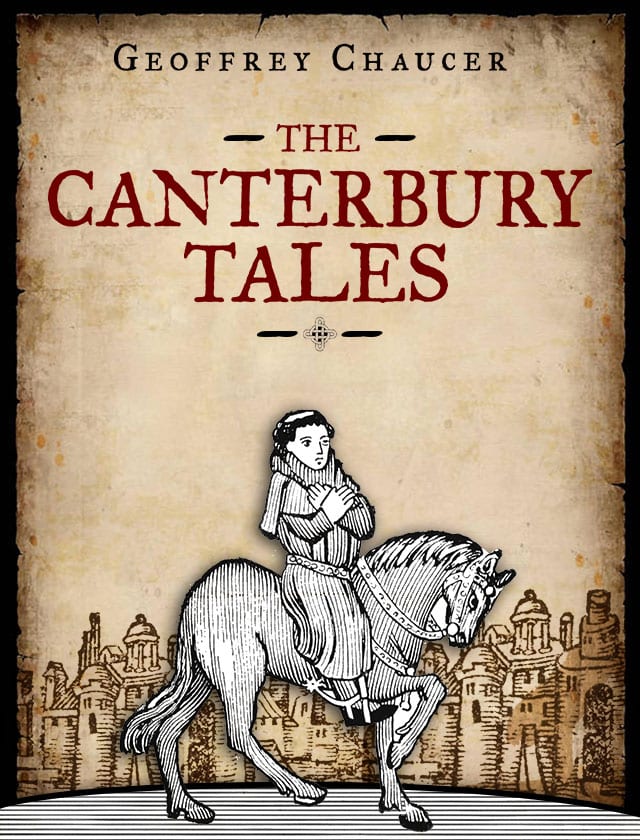

“There was also a Nun, [a] Prioress, [w]hose smile was gentle and full of guilelessness. [s]he wore her cloak with dignity and charm, [A]nd had her rosary about her arm,[…] As for the charity and tender feelings [s]he melted at whatever was piteous.”
The prioress seems a flawless and virtuous person; a pious and religious woman devoted to Christian values such as humility, generosity, obedience to God, self-control, and charity. A woman who believes that, “All things are subject unto love.” The Prioress seems the perfect example of a truly spiritual person detached from material things.
But if we read between the lines of Chaucer’s General Prologue, we may see that she overindulges in food, drink, wealth items, and love. For example, she has an expensive rosary, “[t]he small beads coral and the larger green, [a]nd from them hung a brooch of golden sheen.” In addition, she eats meat and she takes pleasure in giving dogs “roasted meat or milk or good wheat bread”
During medieval times, meat was an expensive food reserved for royalty—an important symbol of wealth. Only pet dogs of wealthy people had such expensive food. The prioress not only eats meat, but she also wastes it by giving it to the dogs. She wears an expensive rosary. She overindulges in worldly pleasures. As a nun, she lacks spiritual discipline and self-control. She should overindulge in charitable acts toward other human beings; she should live in poverty and humility.
No one is perfect. No one should be considered perfect. No one should value perfection. There is no perfection in life. Only flaws covered by masks and lies.
Be imperfect, but humble.
Have flaws, but be kind.
Don’t lie, don’t hide, don’t pretend to be someone else.
Flaws are beautiful, on an honest person.
Hugs,
Ink n Paper.


Great post…and thanks for the shout out!
LikeLiked by 1 person
Thank you! I wanted to write about the Wife of Bath but the Prioress got my attention. 🙂
If you read Boccaccio–The Decameron–let me know your thoughts on it. 🙂
Happy Sunday!
LikeLike
Back in high school all those many, many years ago, we had to choose an author to write about for a final project — which accounted for a large part of our grade. I chose Geoffrey Chaucer and had fun reading through his Canterbury Tales. I think, though, I was probably too young to fully appreciate the stories and all their subtle nuances on life. Now, from the perspective of an old woman, I’d like to re-read Chaucer. Thanks for reviewing the Tales. I’m going to go grab a copy of it now.
LikeLiked by 1 person
I took a World Literature course a few years ago and I fell in love with Chaucer. I always loved world literature, but in Italy, in high school, we focused on Italian literature and in college we focused on art history ( architecture college). Chaucer is pure genius! If you have time, read Boccaccio–The Decameron ( https://www.gutenberg.org/files/23700/23700-h/23700-h.htm )
LikeLiked by 1 person
Italian art and literature are certainly worthy of many years of study, so consider yourself fortunate to have that background. I will check out The Decameron. 🙂
LikeLiked by 1 person
Not sure how the Decameron will read in English (Not sure how jokes and puns in Italian sound in English but it is most definitely something you should read in any language!)
Same for Pascoli, Leopardi, Dante, Petrarca and Ugo Foscolo.
Dei Sepolcri by Foscolo is one of my fav.
LikeLiked by 1 person
Humor is exceedingly difficult to translate. As much as possible, I always try to read in the language a work was written in. I’m not sure my Italian could handle The Decameron though.
LikeLiked by 1 person
if you have a chance to read it in English let me know how it is. I am done with classes before Christmas week. I will try to read it in English around that time. I so miss reading books just for fun!
LikeLiked by 1 person
I will grab a copy of it soon and let you know what I think. 🙂
LikeLiked by 1 person